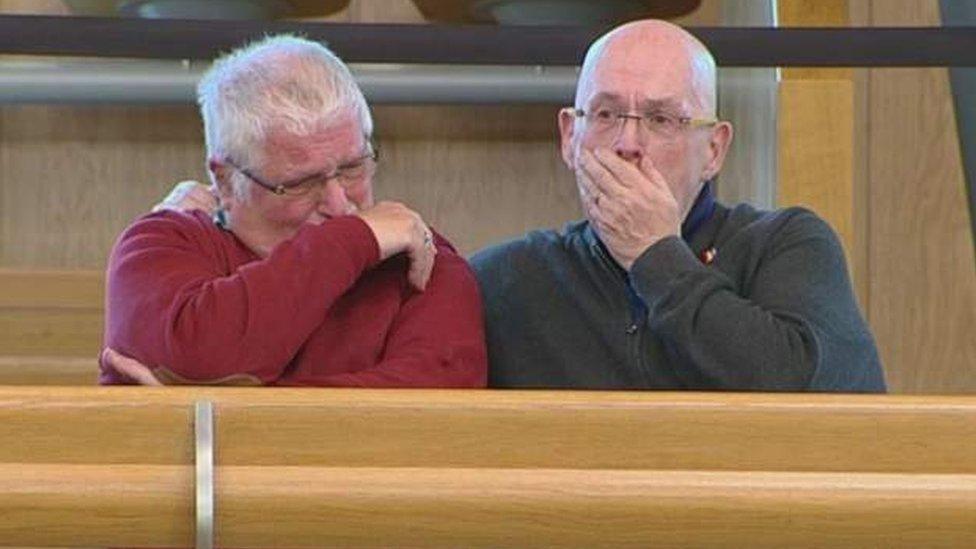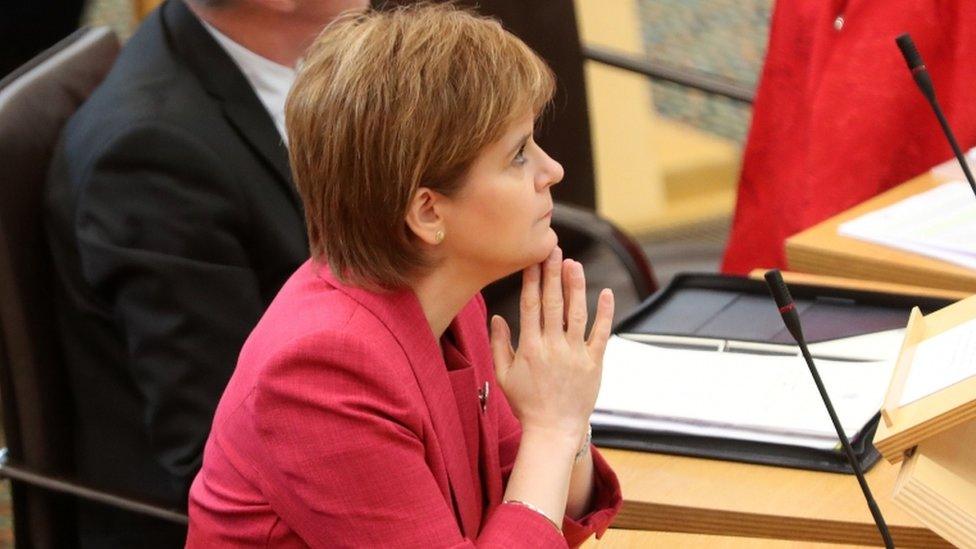Tears of joy over gay convictions apology
- Published

Ms Sturgeon's apology was given a warm welcome by people sitting in the public galleries
On the floor of the chamber, sympathy and solemn determination. In the public gallery, tears of joy. The occasion? An apology from the first minister for the conviction of gay men under previous laws.
As Labour's Kezia Dugdale noted, apologies are rare events in politics and customarily have to be wrung from an unwilling government by the persistence of opposition parties.
This, as she also generously noted, was of a very different character. It was a sincere apology from the FM, delivered with power and empathy.
Furthermore, Nicola Sturgeon was apologising on behalf of a much wider constituency. By definition, she was not apologising for personal or political failings.
Her government had nothing to do with historic laws banning gay sex. Indeed, through such initiatives as gay marriage, their actions have been decidedly in the liberal direction.
But Ms Sturgeon explained that she felt the apology was a proper accompaniment to the bill proposing an automatic pardon with a concomitant right to obtain the disregard of convictions in record books.
A pardon, she said, retained to some degree the suggestion that something wrong had been done by the individual which was now forgiven by a benevolent state.

Ms Sturgeon made a "categoric, unequivocal and wholehearted" apology to gay men who had been the victims of injustice
To the contrary, she argued, it was the state which was at fault for criminalising loving relationships which happened to be same gender.
And so, as well as remedying the problem, an apology was required - which she delivered "wholeheartedly".
Watching in the gallery was Derek Ogg QC, who has long campaigned for reform. Asked if the measure was overdue, he acknowledged gently that it was - while noting that sometimes activists had to wait for society to catch up.
However, he also deftly placed today's initiatives in a wider context by arguing that they were a measure of Scotland maturing.
Skulking in the gloom
In the chamber, the measures were universally welcomed - again an unusual set of circumstances. The bill will be closely scrutinised but seems certain to be carried without much further ado.
And the impact? Folk in the gay community we've talked to seem generally content. But I was very much struck by the comment offered, in a Glasgow bar, by one older man.
He was delighted by the change. He was pleased at the apology. But he counselled that prejudice had not vanished entirely. Far from it.
It was simply, he said, that while gay men had come out of the closet, homophobes had taken their place, skulking in the gloom.
They were mostly aware, he said, that their views were no longer socially acceptable. Perhaps they kept their views - mostly - to themselves. But their views had not changed and they were not always silent.
Which is perhaps why the FM described her initiatives today as "an important milestone" in the progress towards equality. Not the end of the race.